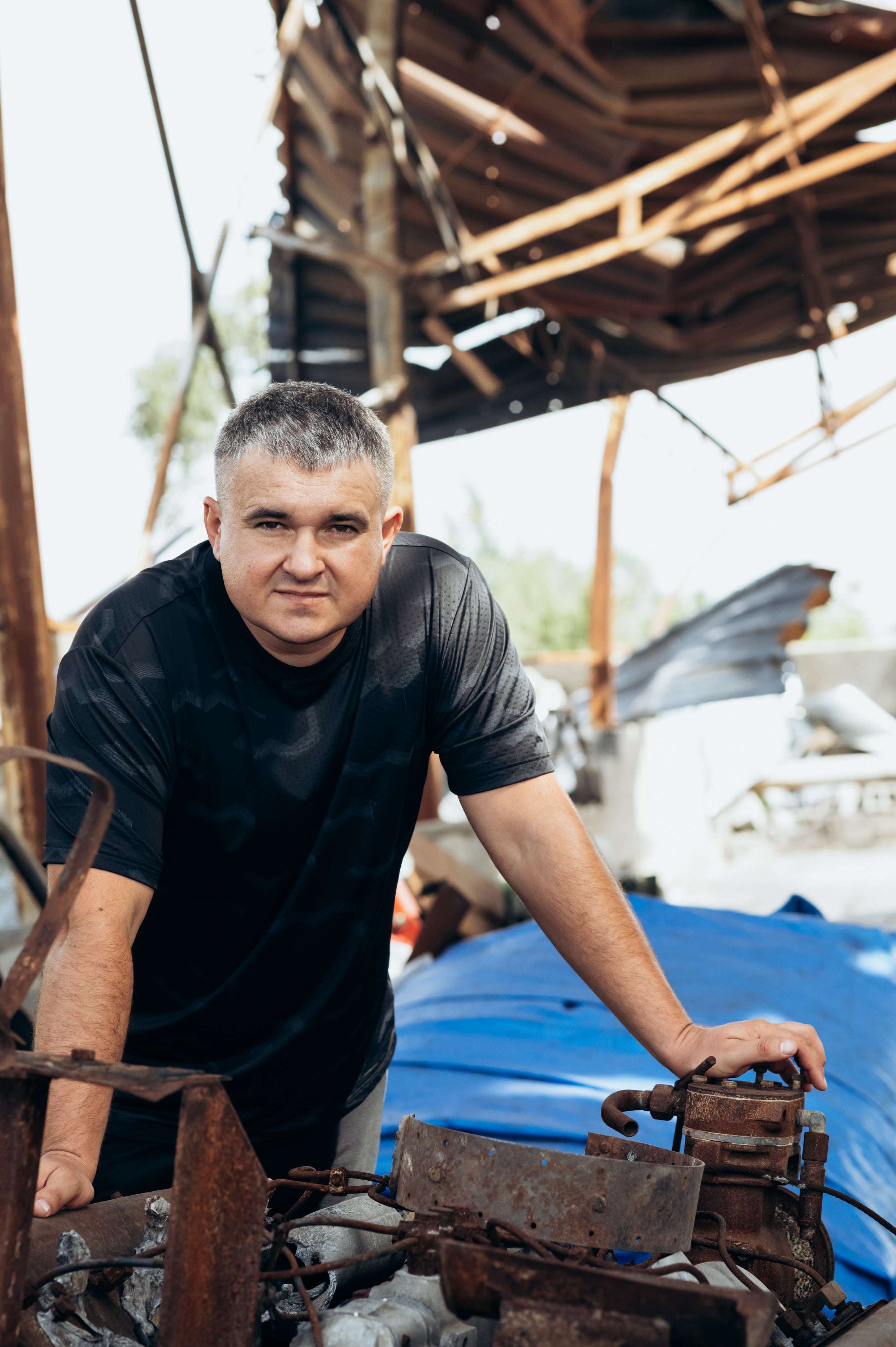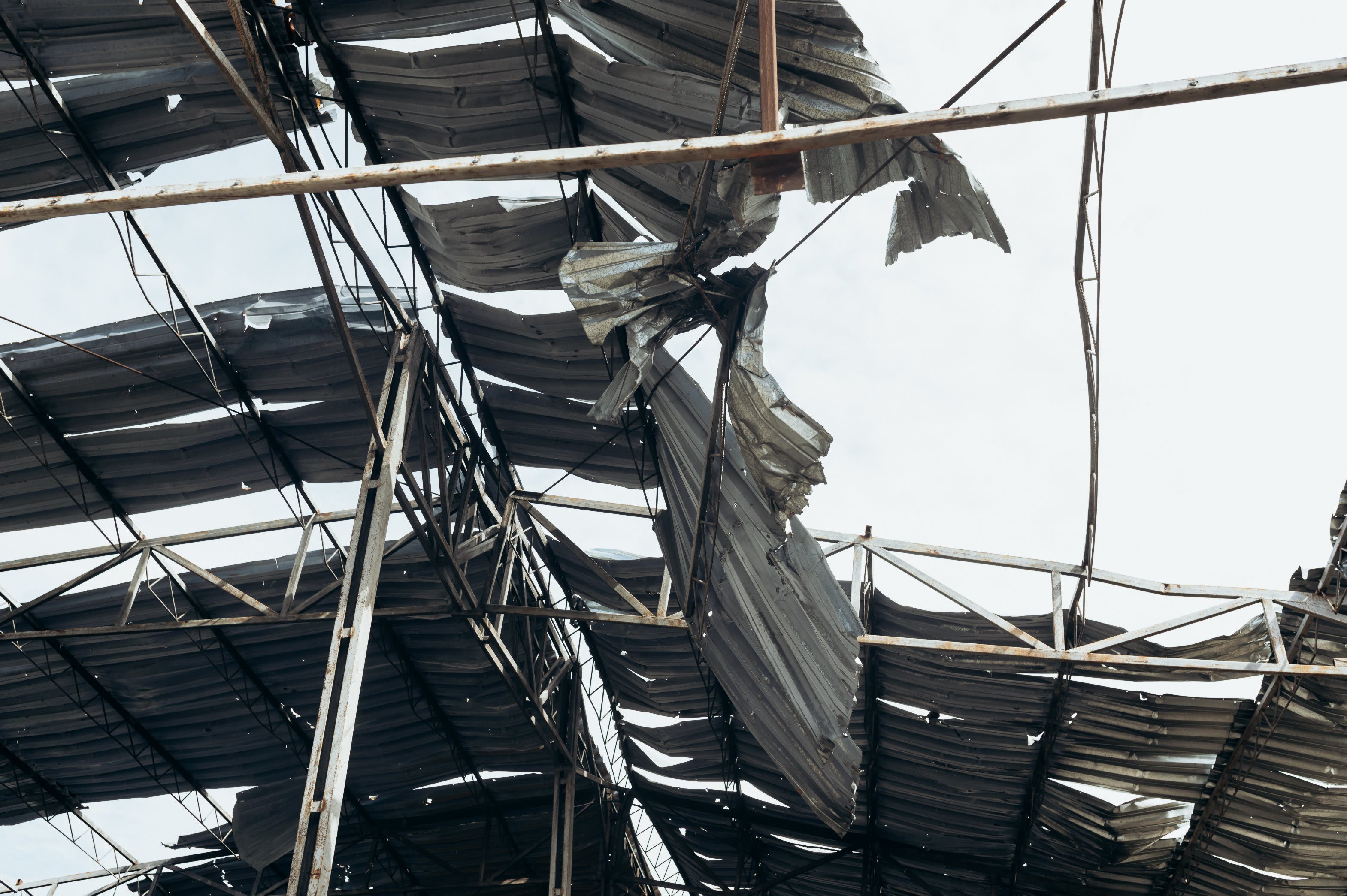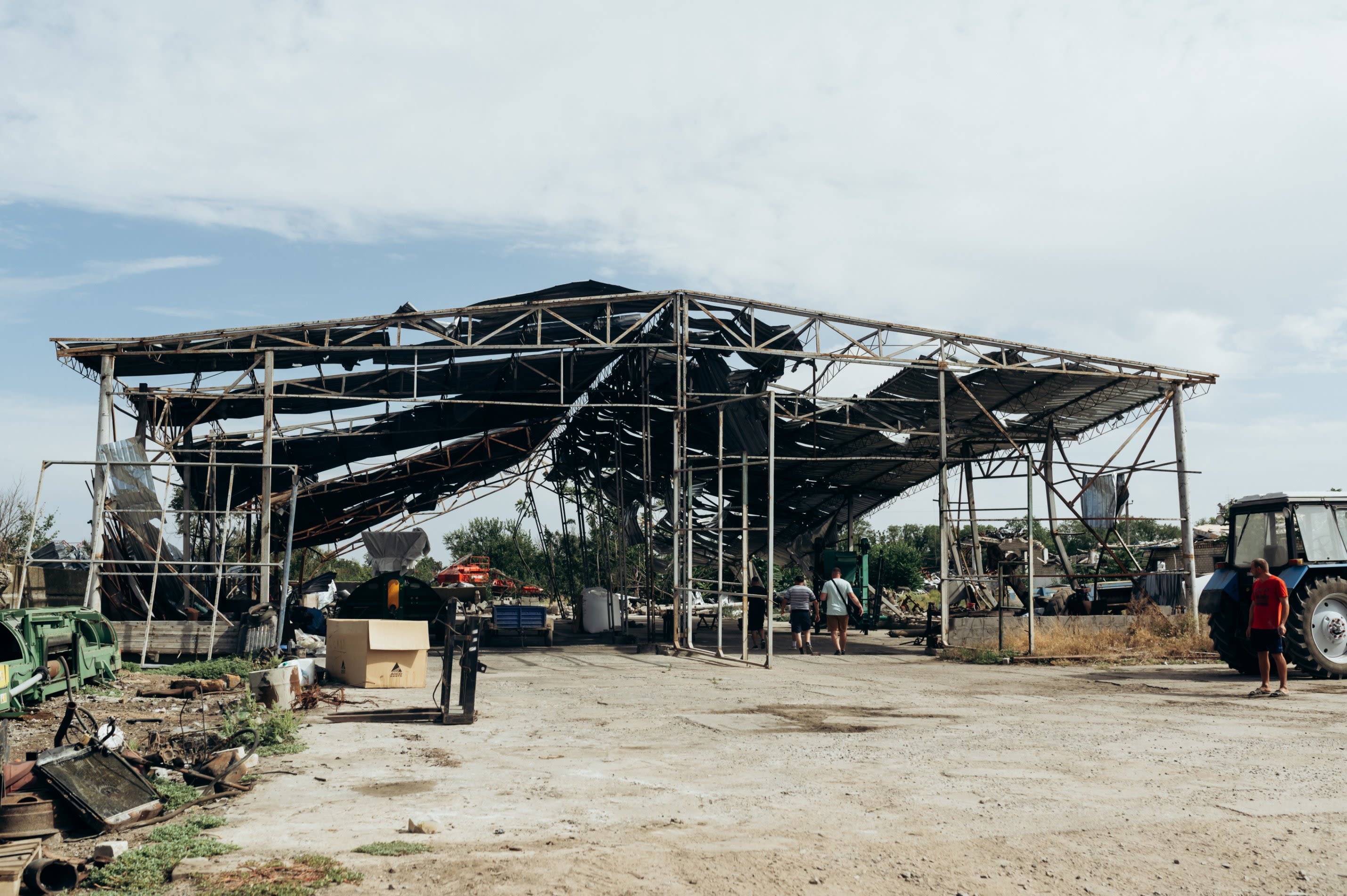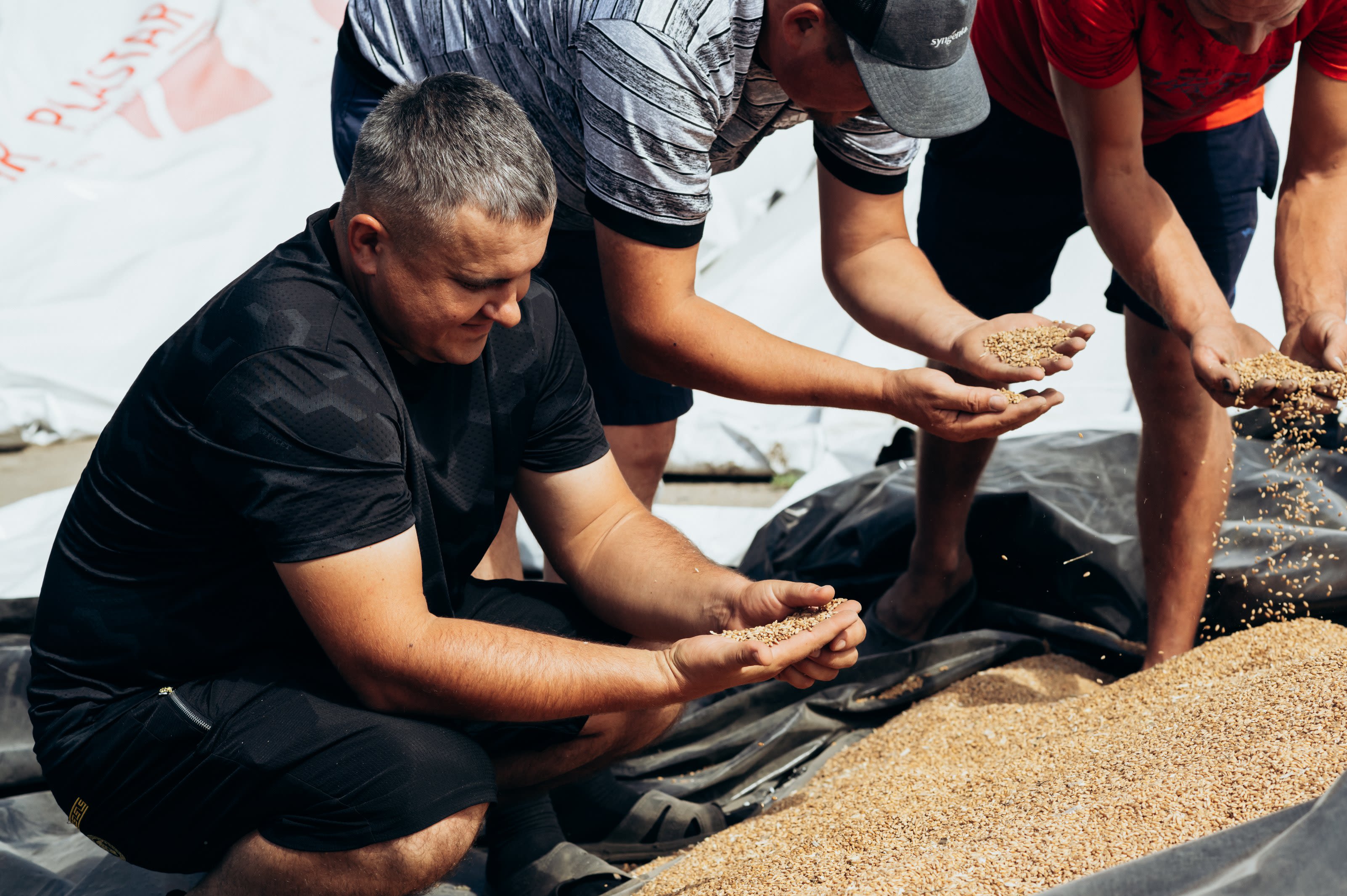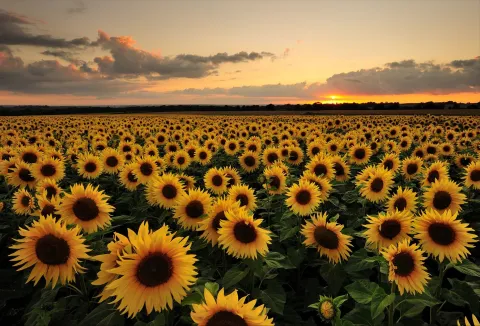Farmers with fortitude
Ukrainian growers’ commitment to their crops

As soon as it was safe for Ukrainian grower Andrii Stanislavovych Stets to return to his family farm, he planted sunflowers. But first, he scoured his fields, metal detector in hand, clearing the soil of leftover explosives.
Stets farms near Kherson in southern Ukraine. In early 2022, Kherson was the first major Ukrainian city to fall in the ongoing war. It was liberated nine months later.
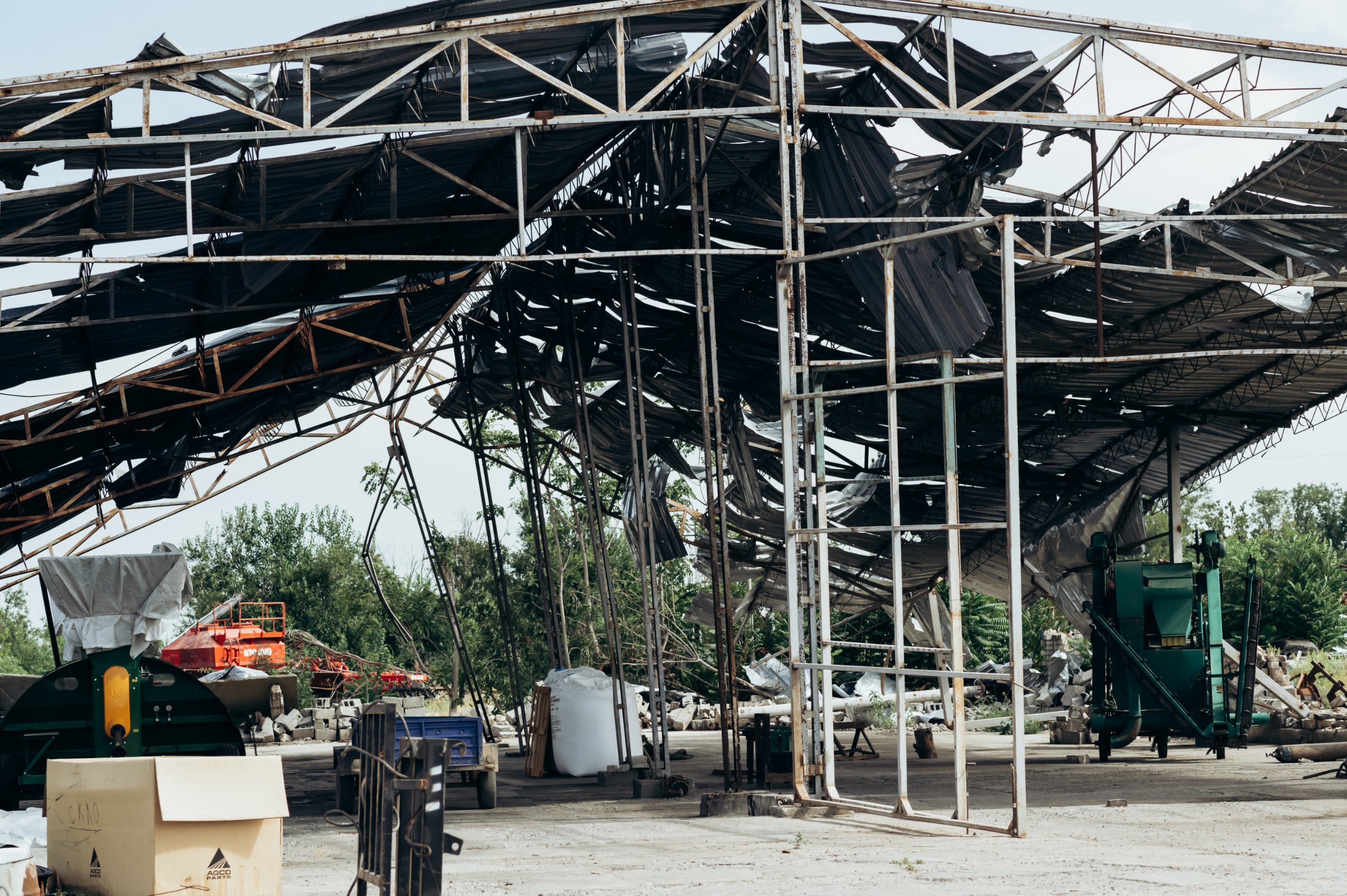
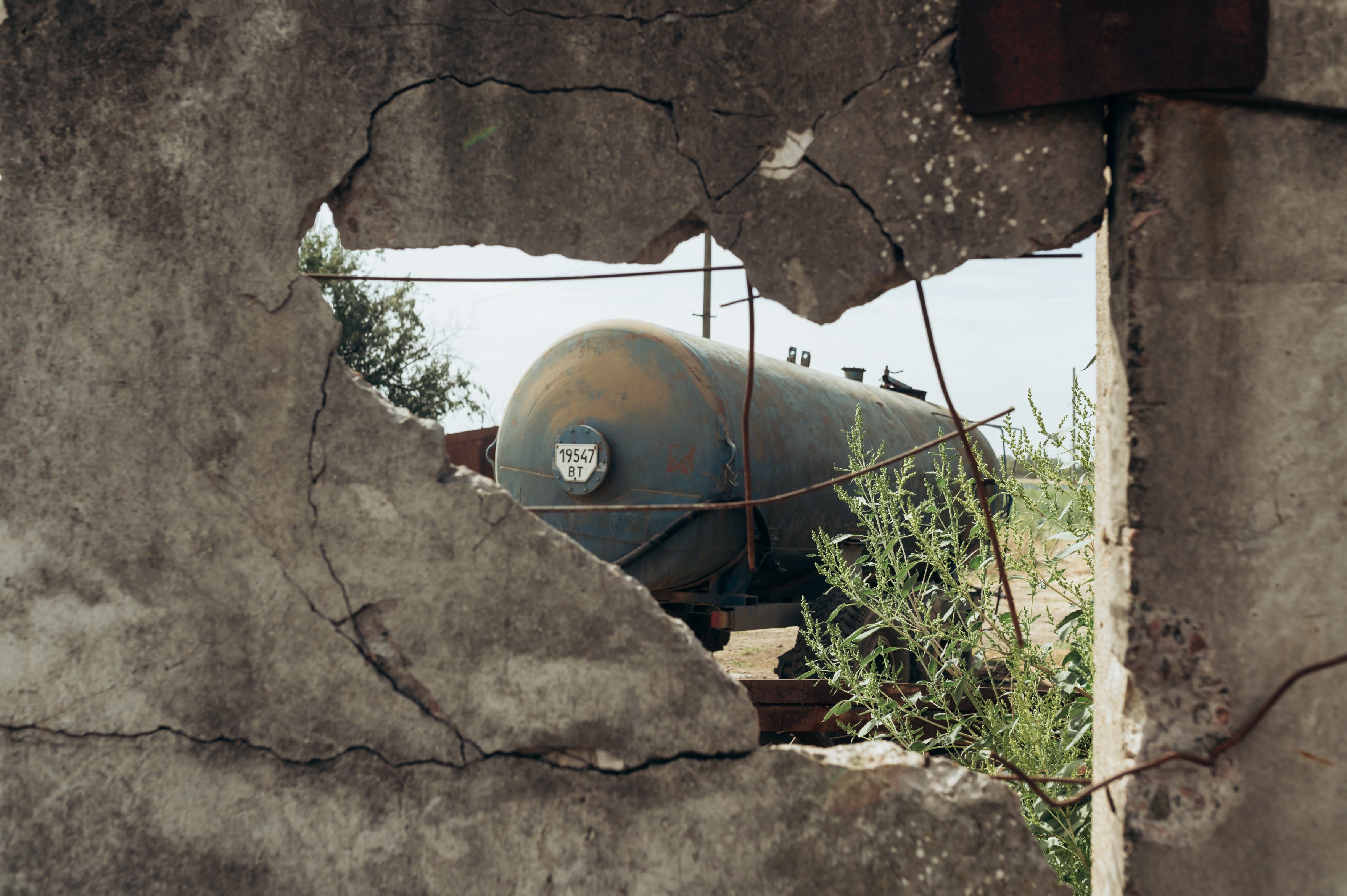
When Stets returned to his second-generation family farm, it had been looted. The insides had been torn out of the equipment as it was stripped for parts. There was no electricity.
“Everything – every tool we had – was gone,” he remembers. “Still, we gradually got back to work. Spring was approaching, and something had to be done with the land.”
As the country’s farmers tried to piece their livelihoods back together, he planted row upon row of sunflowers. Across 700 hectares, sunshine began to peek through. Stets’ crops flourished.
You’d expect as much from the world’s largest producer of sunflower oil. As bundles of optimism in bouquet form, sunflowers are synonymous with positivity - but in Ukraine, they’re also big business. Half of the world’s sunflower oil comes from this fertile land. Stets’ wartime crops, a triumph in themselves, would contribute to this six-billion-dollar industry - which shores up Ukraine’s economy.
But when it was time to sell his harvest, there was a catch: prices had dipped in response to the chaos. So, the blooms were stored in warehouses, several of them, for safekeeping, until the pricing stabilized. Then his farm was caught in the crossfire once again.
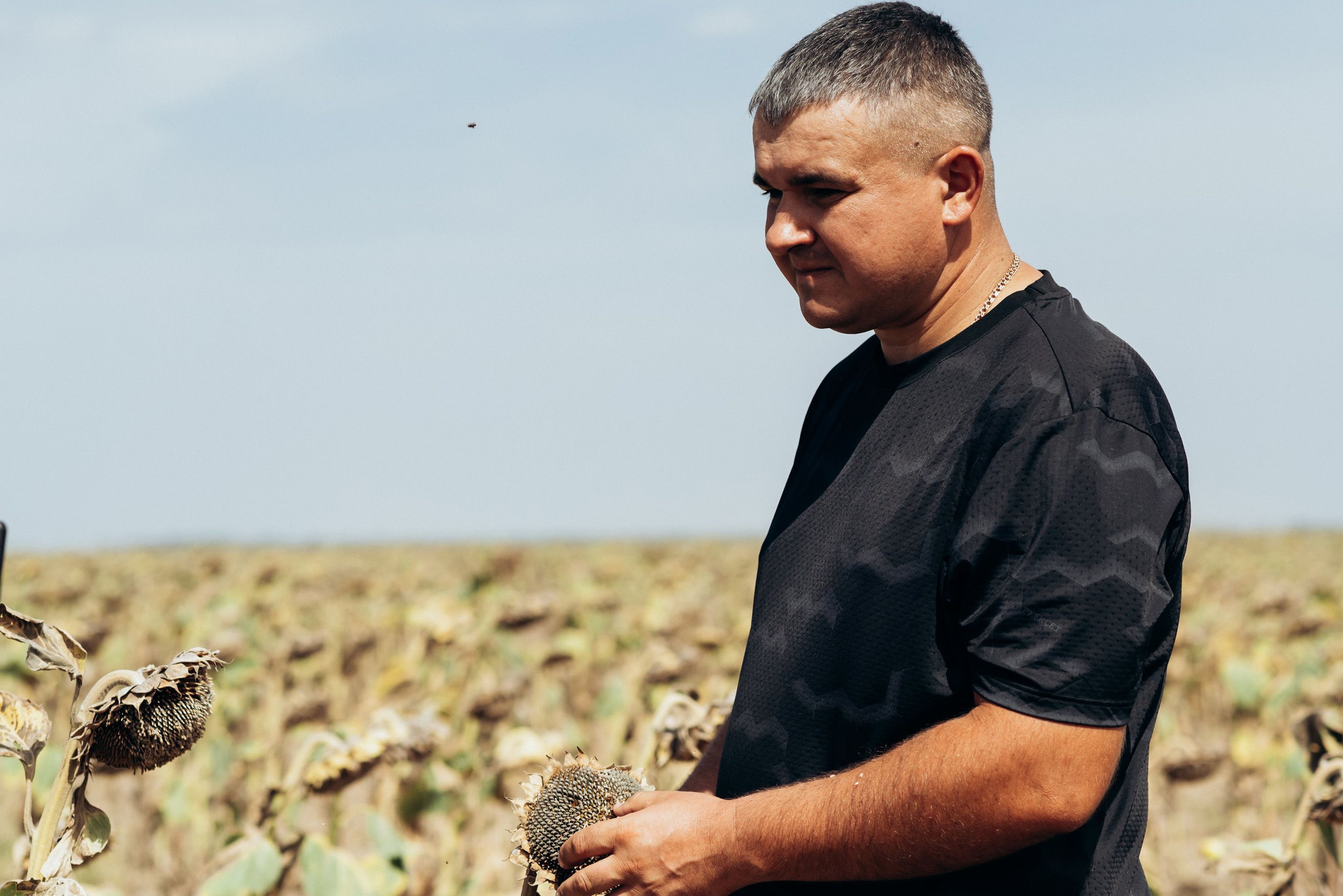
“The entire harvest was destroyed. About 600 tons of sunflowers burned.”
Farming as food security
For farmers, crops are more than just food. They represent countless hours of planning, effort, and care. It’s their livelihood, but also their life’s work. And to see that, quite literally, go up in flames, speaks to the cruelty and unpredictability of war.
It also brings a near-universal certainty – that there will be food for us to eat – into question. In its simplest form, farming equals food security for millions of people.
That’s why the protection of agriculture, the essential machine of feeding the world’s population, is enshrined in documents like the Geneva convention - so that food production remains safe in both war and peace time.
“We need to unite,” Stets says. “I believe that if we can support each other and stand together, we can achieve anything…ensuring that not only Ukraine but the whole world has bread and food products.”
Stets says of the country's agriculture industry: "We need to unite."
Stets says of the country's agriculture industry: "We need to unite."
Global grain chain unlinked
Stets is thankful that his loved ones were not harmed alongside his crops in the post-harvest crossfire. Still, the damage to his farm was catastrophic. Falling bombs punched craters in his land and hollowed out rows of essential machinery. The bones of broken buildings were flung across the land as warehouses crumbled.
The damage to Stets' farm was catastrophic.
The damage to Stets' farm was catastrophic.
This has been the reality for Ukraine’s farmers for more than three years now, as the war with Russia rumbles on. Nicknamed ‘the breadbasket of Europe’, Ukraine has some of the most fertile land in the world. For the past decade, it has been the largest exporter of sunflower oil and a leading exporter of wheat and barley.
But today, the country’s growers are facing intense uncertainty. Amid the fighting and disrupted planting schedules, inputs such as fuel, fertilizer, and access to essential equipment like tractors are scarce.
Farmers whose land has been occupied often return to fields contaminated with mines or unexploded ordnance, which they must clear before they can re-plant their crops. In 2023, Ukraine became the most mined country in the world. Demining is a dangerous, complex task – and one million of growers now face. It could take decades to completely recover Ukraine’s prosperous agricultural land.
Those crops that are safely planted and harvested can then face their own logistical headaches. Shipping routes have been disrupted in the chaos and commodity prices have fluctuated. It is estimated that the country’s agricultural sector has suffered more than $80 billion in direct losses and damage as a result of the war.
This unlinked grain chain has worrying implications for poorer countries that rely on imported grain to feed their millions.
For context:
- Asian and African countries received more than 90 percent of Ukraine’s wheat in the years from 2016-2021.
- In the 2022-2023 harvest season, Ukraine's production of major grains - corn, barley, and wheat - was down 29 percent on the year prior.
- And according to a recent estimate, the country’s exports for the 2025/26 season could fall another 10 percent, owing to a small harvest.
Stets and his farm workers faced an immense clean up job before they could plant again. All of his equipment, save for a single tractor, had been destroyed.
“After all this, honestly, I don’t know. We’ve practically lost all motivation,” he says.
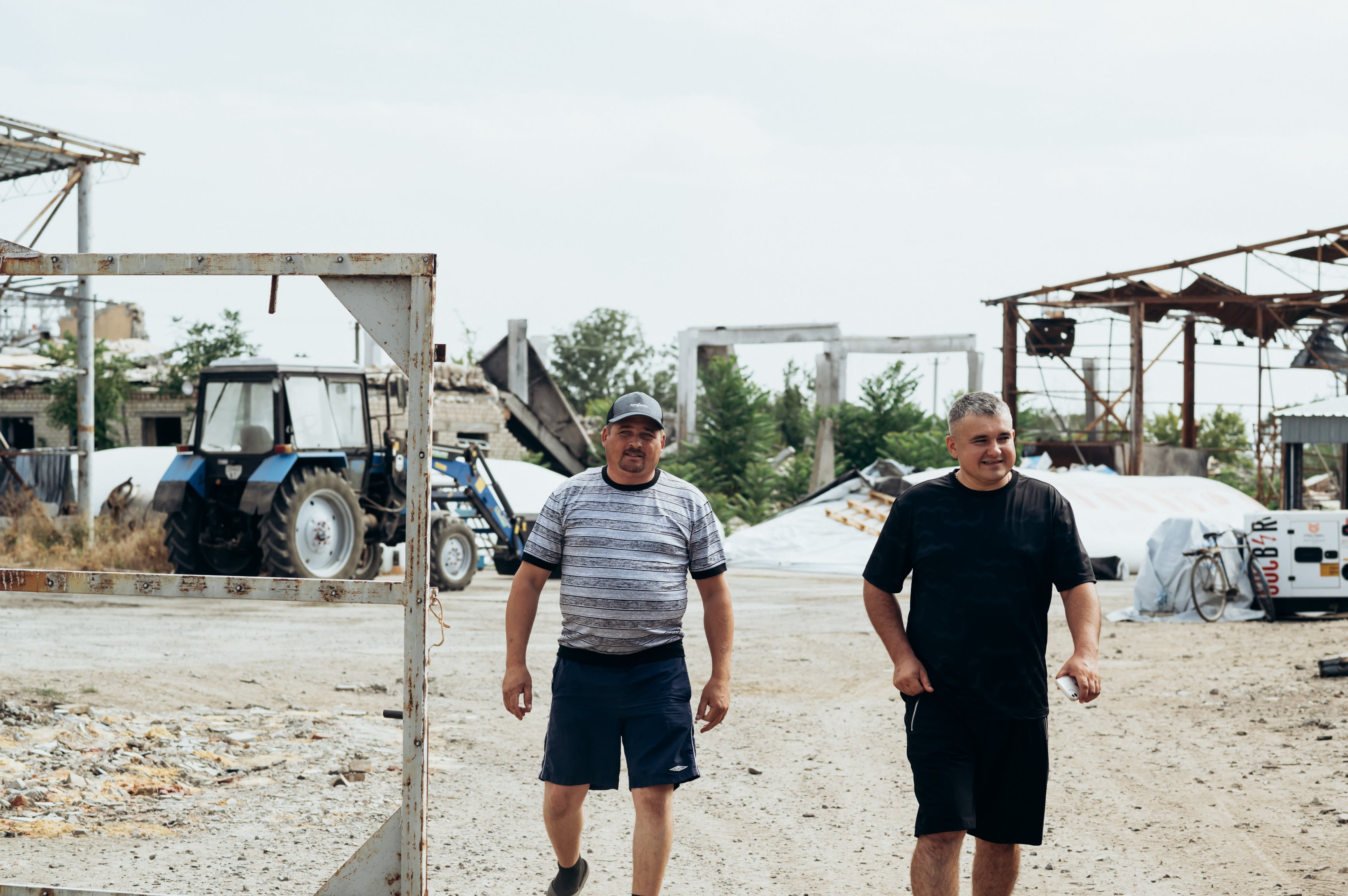
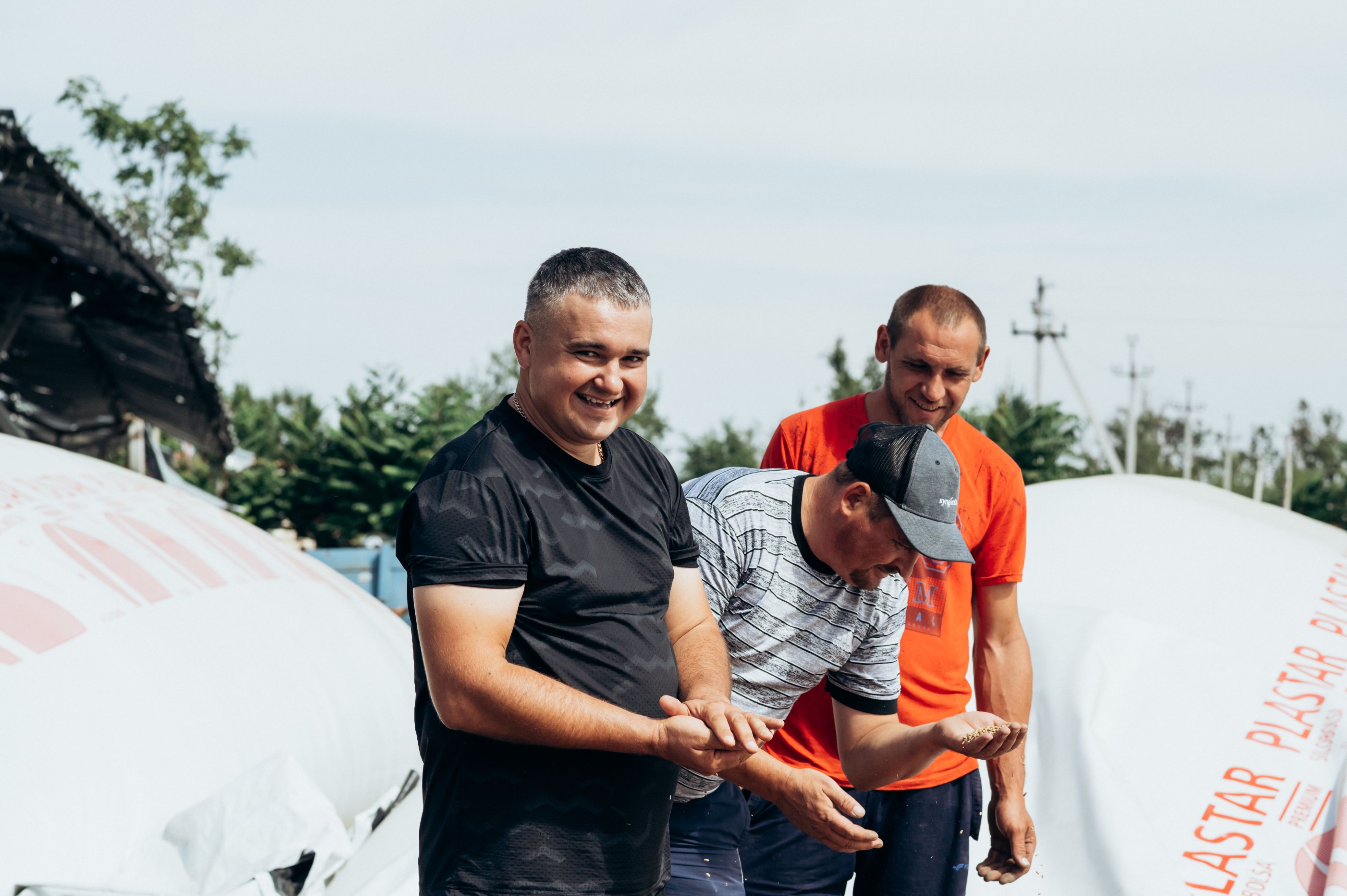
Farmers rally together
Despite all they’d faced, the agriculture community rallied to support one another.
“People like us, other farmers, helped out. Someone lent a tractor to bring a trailer of seeds, someone offered a space where we could clean and treat it,” says Stets.
Syngenta’s local representatives, who have long worked with the region’s local growers, have helped to secure essential machinery – such as the tractor and seeder Stets needed to replant his crops.
The company’s agronomists have also given the technical advice growers need to navigate the new state of their soils and plants. This support was essential to Stets planting 1,000 hectares of rapeseed, wheat, and winter barley crops, which survived until harvest.
A new reality
The family farm remains close to active combat. Drones fly above at night and the local farmers are on standby with water tanks as uncontrolled fires become more common. Despite the shelling, and the fires, and the lack of essential inputs, the farmers have persevered.
“Given the conditions we’ve faced – without fertilizers or timely planting as required by technology - we still managed to get a reasonably decent harvest,” he says.
Despite the conditions faced, Stets managed to achieve a 'reasonably decent' harvest.
Despite the conditions faced, Stets managed to achieve a 'reasonably decent' harvest.
Stets is just one grower in a country of millions, doing what he can to care for his land and crops as the war rages on. But despite everything he has lost, he is still farming. And so are the rest of Ukraine’s resilient growers.


